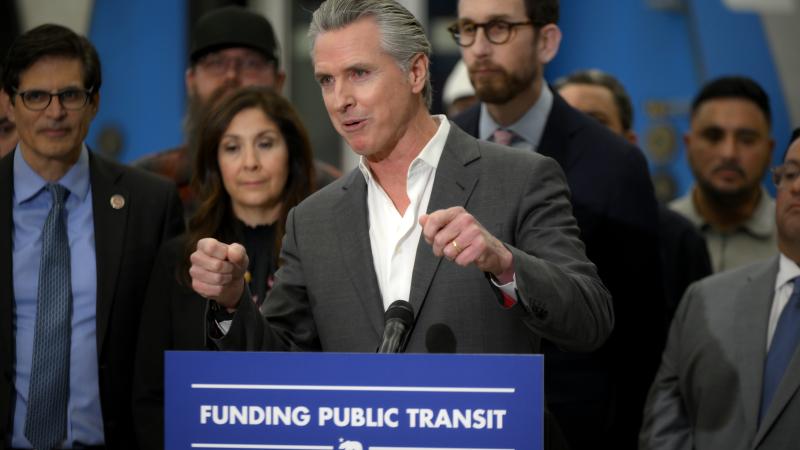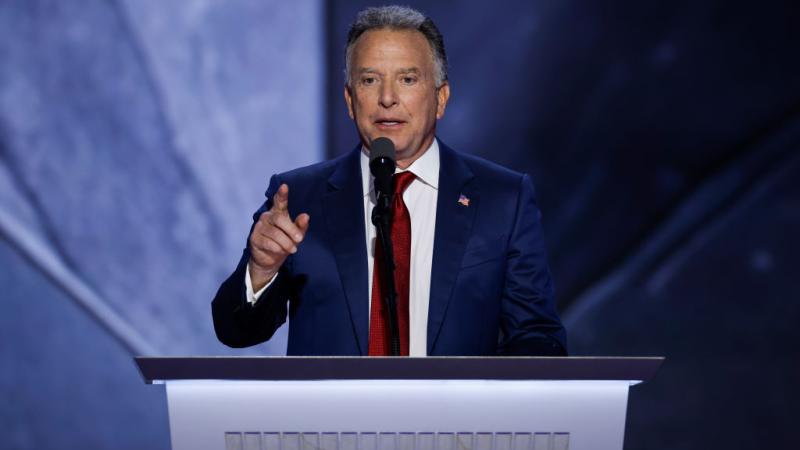Voters balked on natural gas bans, but climate advocates are hoping to withstand court challenges
From efficiency standards to taxpayer supported electrification programs, anti-fossil fuel activists aren't giving up on the fight to stop consumers from using natural gas.
When a Consumer Project Safety commissioner suggested in 2023 that the federal government would consider banning gas stoves over safety concerns, it set off fierce nationwide backlash. While the Energy Department finalized stove efficiency standards, they were watered down from the original proposal and no outright ban ever materialized.
No federal ban on gas stoves materialized, but climate advocates seeking to stop consumers from accessing natural gas have tried a number of state and local efforts to achieve their goals – all with similar results as that on the federal level. Despite more recent losses, they’re looking at trying some other strategies.
Voter rejection
Last month, voters in Washington approved a ballot measure to protect consumers’ access to natural gas, and Berkeley, California, voters soundly rejected a measure that would have taxed natural gas emissions in large buildings, with the funds going toward decarbonization programs. Opponents of the measure said the tax would have made natural gas an unaffordable option, and therefore, the measure was a de facto ban.
Despite voter approval, Washington climate advocates are now taking the matter to the court. A conservation group, a solar industry group, the city of Seattle, and King County filed a lawsuit to overturn the Washington measure, arguing that it violates state Constitutional limits on how many subjects can be included in a ballot measure.
Steve Everley, senior managing director at the communications firm FTI Consulting, said in a post on LinkedIn that opponents behind the lawsuit aren’t giving any consideration to the fact that voters in the only state to see an increase in votes for the Democratic presidential candidate rejected the gas ban.
“The voters have the ‘wrong’ opinion, apparently,” he wrote.
Everley also noted contradictions in opponents’ claims during the lead-up to the November vote. The “No on I-2066” campaign website claims that “Washington law already guarantees energy choice and allows people to have natural gas if they want it.”
Said Everley: “If existing laws were actually protecting consumer choice, a law to codify that wouldn’t be a threat to any of those efforts.”
Even the left-leaning Seattle Times isn’t comfortable with the lawsuit. The Times editorial board Monday argued that opponents of I-2066 shouldn’t go against the will of the voters.
Supporters of the lawsuit “fail to see a genuine fear that, during the clean energy transition, the fundamental supply of energy to homes and businesses – the basic ability to stay warm, cook food and bathe – is under threat. Blocking the initiative is not the way to reassure Washingtonians about the state’s energy supply and earn their trust within the immense and necessary effort of decarbonization,” the board wrote.
Backers of the measure have also filed a lawsuit to force the Washington State Building Code Council to comply with initiative.
To the courts
Activists are also lobbying for laws using different strategies to ban the use of natural gas, apparently hoping they’ll have luck in the courts against legal challenges that pop up every time the laws are passed.
Past experience suggests that might not happen. In 2019, Berkeley became the first city in the U.S. to ban natural gas hookups in new construction. The Sierra Club, which is managing $1 billion from billionaire Michael Bloomberg to fund a campaign to prevent consumers from accessing fossil fuels, including coal, hailed the move. The organization kept a running tally on other California cities that followed with similar legislation.
However, the Ninth Circuit Court of Appeals struck down the ban, and then rejected a request for a rehearing in February, effectively killing the law. The Sierra Club stopped their tally in April 2023.
Lawmakers in 26 states have passed some form of legislation protecting consumer access to natural gas, according to the American Gas Association (AGA), an industry group. Karen Harbert, president and CEO of the AGA, told E&E News that these laws and voter opposition reflect a “bipartisan pushback,” because people see natural gas as affordable and reliable.
Data from the federal Energy Department confirms the claim. According to the DOE, electricity costs 3.5 times more than natural gas – and that’s been the case since at least 2011.
Other strategies
While outright bans are a dead end, activists are looking to energy efficiency standards to advance their anti-fossil fuel agenda, E&E News reports. These restrictions allow natural gas appliances but reduce the amount of natural gas used.
Other activists are trying to advance taxpayer-supported electrification programs, such as a law in California that provides taxpayer funding to low-income neighborhoods to replace old gas pipelines with electrification infrastructure.
Some states, such as New York, went forward with bans on gas stoves and are now facing lawsuits. Denver used building codes to try to stop its residents from using natural gas, and those codes are also facing a lawsuit.
The National Association of Home Builders (NAHB) joined labor and other industry groups in a lawsuit against bans on natural gas in construction in Maryland and Washington, D.C.
“The lawsuits aim to preserve customer choice and promote balanced, long-term solutions that prioritize safety, affordability, and reliability,” the NAHB said in a statement.
It will be up to the courts to decide if these strategies pass legal muster. As anti-fossil fuel activists lobby for more anti-gas laws, it appears they’re hoping to find more favor with judges than they have had with voters.
The Facts Inside Our Reporter's Notebook
Links
- would consider banning gas stoves
- voters in Washington approved a ballot measure
- rejected a measure
- violates state Constitutional limits
- said in a post on LinkedIn
- campaign website
- Times editorial board Monday argued
- filed a lawsuit
- managing $1 billion from billionaire Michael Bloomberg
- running tally
- request for a rehearing
- according to the American Gas Association
- told E&E News
- Data from the federal Energy Department
- since at least 2011
- such as New York
- Denver used building codes
- facing a lawsuit
- lawsuit against bans
















